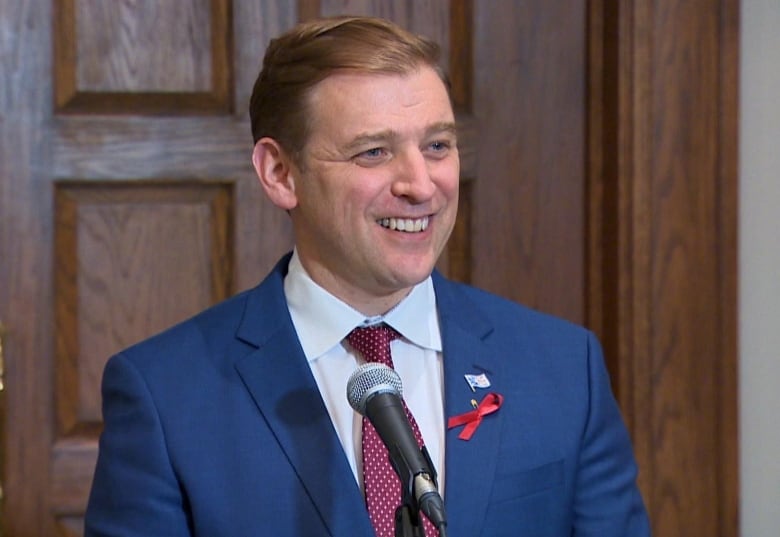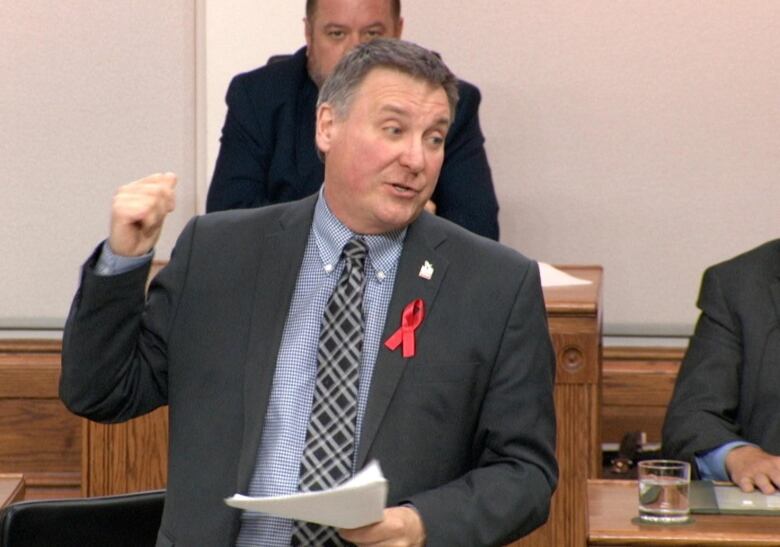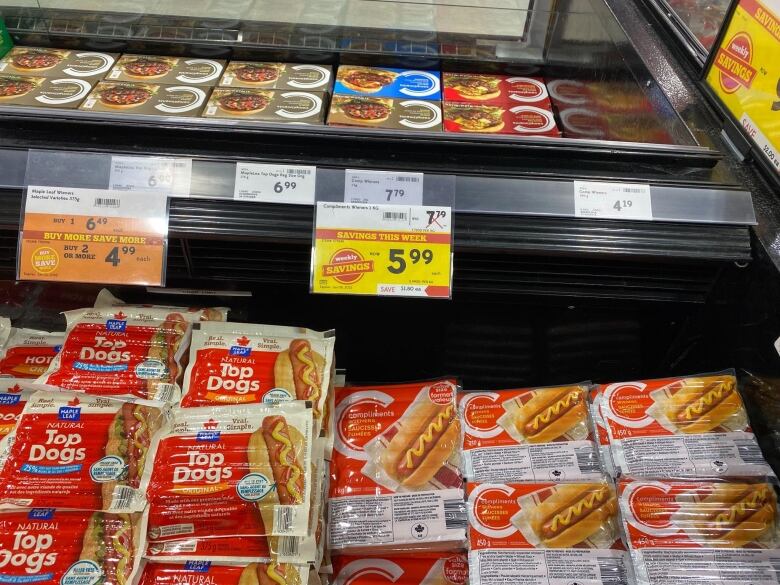Andrew Furey does a victory lap, but it won't make your grocery bill any cheaper
Soaring food and fuel prices hitting family budgets hard

This is a column about politics, premiers and the price of wieners, amongother things. We'll get to the hotdogs in due course; first, though, let's look at some political hotdogging.
There wasa bounce in Andrew Furey's step and a smile on his face Wednesday afternoon, just as the House of Assembly was wrapping up its spring sitting.
Joking with reporters moments before a scrum outside the legislature, Fureynoted he had a bit of an earworm in his head. The tune? Beast of Burden, by the Rolling Stones.
That's the 1978 song in which Mick Jagger asks his lover if he's hard enough, tough enough and rich enough.
Money was also on the mind of Furey, who in August will wrap up his second year on the job as premier.
Furey seemed to be running a political victory lap as he spoke about the accomplishments of the last few months: a chartered flight that brought Ukrainian refugees to the province; approval of the Bay du Nord offshore oil megaproject and then the revival of the West White Rose project; introduction of $15-a-day daycare; new measures to help people deal with the soaring cost of living.
It was that last issue the fact that everything seems to cost a lot more than it recently did, and this week's announcement of some relief measures from Confederation Building that seemed to animate Furey in the most.
Indeed, the premier went so far as to boast about it in the legislature.
Opposition leader David Brazil was peppering Furey with questions, looking for a "tangible plan that addresses the immediate needs" of the province, which he noted has the "highest cost of living, the highest fuels in Canada and the exit of more people than in any other province."

Furey swung back, and described a call Tuesday night with the three other Atlantic premiers.
"They were jaw-dropped at how much we've actually done. The other premiers across the Atlantic region have done far less for their populations," Furey said.
"Nova Scotia has only done $15 million, Mr. Speaker. We've done $244 million to give back to the people of the province."
Ouch. Furey even doubled down outside the legislature, taking a swing at Nova Scotia in particular. (Let's not forget Premier Tim Houston is Progressive Conservative, and let's not also overlook that Andrew Furey, the second generation of a powerful Liberal family, hardly criticizes other Liberal governments, particularly the one now in power in Ottawa.)
"People need to understand and know that we've done in excess of 10 times what Nova Scotia has done for their people. And we have arguably the worst fiscal situation," Furey told reporters in a scrum.
As if giving himself a report card before the summer break, Furey remarked, "I do think that we have done an incredible job."
All this and the price of wieners
The measures Furey announced earlier this week include a temporary seven-cent cut in the gas tax, which came into effect Thursday a decrease that ran against the trend of a steep upward climb triggered in February when Russia invaded Ukraine. That tax cut, though, expires in January.
They also include a move to increase the minimum wage to $15 an hour over the next 16 months. This is a goal that is literally in the name of the Fight for $15 and Fairness campaign of recent years. The government is spending several million dollars to subsidize that increase for employers with 20 or fewer employees.
Things have undeniably been tough for consumers, and it goes well beyond the gas pump.
At the grocery stores, every trip feels like a case of sticker shock, from fresh produce (rarely cheap at the best of times) to cheese to products you've always thought were cheap.
Like wieners.
One of my colleagues noticed some weeks ago that wieners were selling at one point for almost seven bucks a package. Wieners would never be anyone's top choice of protein (Hint o' Protein, my colleague calls them), but on a tight budget, a lot of families rely on them to get through the day.
At a Sobeys store this week, I noticed that Maple Leaf's popular Top Dogs were selling for $4.49 each if you bought two 375-gram packages, down from the list price of $6.99. Sobeys was selling a kilo of its generic house brand for $5.99 a package, down from the regular $7.79.

I was intrigued enough about this to look at a Statistics Canada database that tracks changes in the price of common foods.
Over the last decade (from February 2012 to this February), the average national price of a pound of wieners (450 grams) has risen from $3.47 to $5.48. Wieners hit the $5 mark last year, around the end of the first year of the COVID-19 pandemic. Overall, that's a hike of 58 per cent.
It's not just wieners, of course. From ramen noodles to bread, from butter to bread, everything seems to be costlier these days. Fuel costs are eating into the bottom line of families who are finding themselves in a bind.
That's pushing people toward food banks, the supposed Band-Aid in the social services system that has become a permanent boost to people getting by.
In a recent interview with CBC News, Carol O'Brien, who helps run the food bank at St. Kevin's parish in the Goulds area of St. John's, said far more people particularly what she described as the working poor are now knocking on their door.
"People are coming every day. We're getting phone calls [from] people in dire need of putting some groceries in their cupboards," she said. "Something has to give. They only have a certain amount of money to make ends meet."
Furey told reporters that the government is hearing from constituents. "We fully appreciate and understand the stress and strain that this is causing with families across our province," said Furey, who noted that a lot of what's been driving inflation is happening far away.
"We'll be following the global issues, the geopolitical issues that are largely responsible for the cost of living," he said. "There are only so many levers we can pull on. There is only so much money we have [to spend], or else we run the risk of putting the province in peril in the future."













_(720p).jpg)


 OFFICIAL HD MUSIC VIDEO.jpg)
.jpg)



























































































